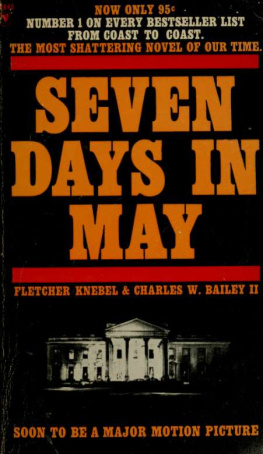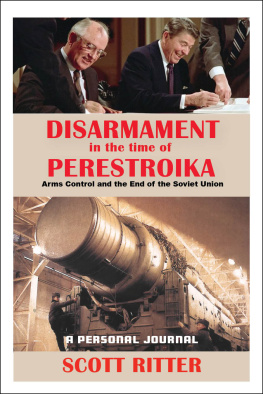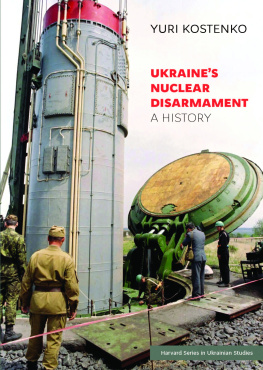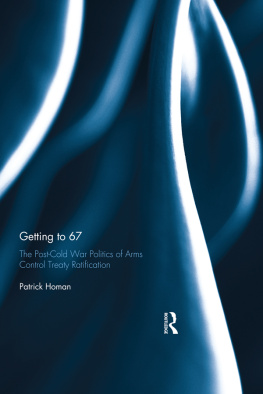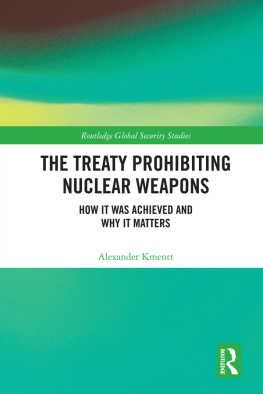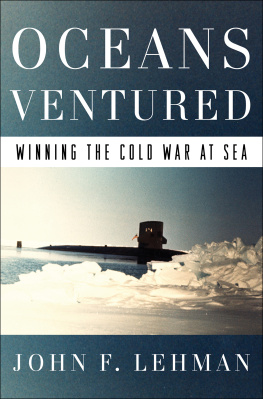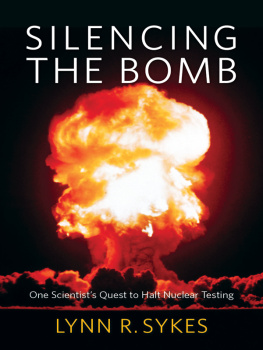Fletcher Knebel - Seven Days in May
Here you can read online Fletcher Knebel - Seven Days in May full text of the book (entire story) in english for free. Download pdf and epub, get meaning, cover and reviews about this ebook. year: 1979, publisher: Bantam, genre: Art / Science fiction. Description of the work, (preface) as well as reviews are available. Best literature library LitArk.com created for fans of good reading and offers a wide selection of genres:
Romance novel
Science fiction
Adventure
Detective
Science
History
Home and family
Prose
Art
Politics
Computer
Non-fiction
Religion
Business
Children
Humor
Choose a favorite category and find really read worthwhile books. Enjoy immersion in the world of imagination, feel the emotions of the characters or learn something new for yourself, make an fascinating discovery.
- Book:Seven Days in May
- Author:
- Publisher:Bantam
- Genre:
- Year:1979
- Rating:4 / 5
- Favourites:Add to favourites
- Your mark:
- 80
- 1
- 2
- 3
- 4
- 5
Seven Days in May: summary, description and annotation
We offer to read an annotation, description, summary or preface (depends on what the author of the book "Seven Days in May" wrote himself). If you haven't found the necessary information about the book — write in the comments, we will try to find it.
Seven Days in May — read online for free the complete book (whole text) full work
Below is the text of the book, divided by pages. System saving the place of the last page read, allows you to conveniently read the book "Seven Days in May" online for free, without having to search again every time where you left off. Put a bookmark, and you can go to the page where you finished reading at any time.
Font size:
Interval:
Bookmark:
The parking lot stretched away to the north, cheerless and vacant. Its monotonous acres of concrete were unbroken except where the occasional shadow of a maple tree speared thinly across the pavement. In the nearby lagoon that opened out into the Potomac, small craft lay in rows at their moorings as though glued to a mirror. No ripple disturbed the surface of the water where it reflected the early-morning sun that was now rising over the silent domes and roofs of Washington across the river.
Colonel Casey parked at the River entrance of the Pentagon. He stood beside his car for a moment, jingling his keys absently as he eyed the old Ford with disgust. Age had settled upon it. Its enamel, once a deep blue, was faded down to a kind of neutral smudge. A rear windowpane was cracked and the fenders were nicked and dented.
Turning away from his car, Casey looked at the great building. The Pentagon loomed up, opaque and formidable, rows of identical windows marching away around its corners without a single touch of grace or humor, as bleak and grim as the business that kept men busy inside it year after year.
Ordinarily Casey approached Sunday duty with a kind of sunny resignation. But this morning a vague uneasiness had ridden with him, an unwanted passenger as he drove to work.
He couldn't diagnose it. Certainly there were plenty of possible causes. The country at large was in a sullen moodapprehensive over the treaty, wary of Moscow, angered by the prolonged missile strike, worried about unemployment and inflation, not quite sure of the man in the White House. An immediate irritant, in his own case, was the strike. Only Friday General Seager, the commander of the Vandenberg Missile Center, had warned in a biting, almost sarcastic message that if the strike did not end in a few days the entire Olympus program would be derailed for months.
Casey stepped briskly across the special parking area, trying to shake off his mood. As each foot swung forward, a glint of high polish intruded on the lower fringe of his vision. If a man learns nothing else in twenty years in the Marines, he thought, he learns how to shine shoes.
Colonel Martin J. Casey was director of the Joint Staff, the select group of two hundred officers that served as the research and planning agency for the Joint Chiefs of Staff. Once a month Casey took on the chore of Sunday duty officer, a post potentially as vital to the defense chain of command as it was boring to the temporary occupant.
He trotted up the broad steps to the River entrance and pulled open one of the tall wooden doors. The guard at the reception desk put down his newspaper to inspect Casey's pass.
"Tough luck. Colonel," he said. "Nice day for not working, isn't it?"
As Casey entered the Joint Staff area, with its big "restricted" sign, he passed through an electric-eye beam which triggered a two-tone chime to alert another guard. This one, a Navy chief petty officer, sat behind a logbook. Casey signed his name and wrote "0755" in the time-in column of the log.
"Morning, chief," he said. "Everything running smoothly?"
"Dead calm, sir." The guard grinned at him. "But I imagine the colonel would rather be out on the golf course today."
Casey could never quite get over the accuracy of the data which a good enlisted man acquired on the personal preferences of his officers. He winked at the sailor.
"So would you, chief. But someone's got to stand the watch."
"Right, sir." Then, taking a little Sunday-morning license, the guard added: "And probably more gets done, sir, without so many topside."
Casey followed a corridor through the jungle of cubicles and offices which was the cloister of the Joint Staff. Once manned by more than four hundred officers and headed by a lieutenant general, the Joint Staff had in recent years been halved in size and reduced to little more than a personal planning agency for the chairman of the Joint Chiefs. This morning the area was as bare as the parking lot. Casey could hear one typewriter; the halting rhythm of the keys told him it must be an officer trying to finish an overdue paper. Casey turned into the large office that went with his job as staff director. The washed-out pale green of the walls told him he was once again at work in the impersonal labyrinth of the Pentagon. With a sigh he hung up his jacket and sat down to look over the Sunday papers he had brought with him.
He skimmed the Washington Post, read two columnists, looked at the baseball scores, and then settled into the New York Times, starting with a line-byline reading of the weekly news summary.
There was trouble everywhere, from Malaya to Milwaukee. The Chinese Communists accused the West of nurturing "spies and saboteurs" in Singapore. A conference of midwestern industrialists denounced the newly ratified treaty. A citizens' committee demanded, in wires to every member of Congress, that striking missile workers be drafted.
But however sour the world's mood, Jiggs Casey had to admit that his own should be bright enough today. For one thing, he felt fit and rested. Beyond his physical well-being, Casey at the age of forty-four had developed a protective skepticism about the woes of the world. It had been going to hell in a handbasket since the year zero zero, as he frequently put it, and if it weren't, who'd need to hire a Marine? His country, which he tended to view with a 'sort of vexed affection, had managed to survive for almost two centuries and with luck it might sidestep any irreparable injury for the three additional decades which he figured were about the span of his personal concern. But this morning his customary tolerance for the shortcomings of his nation had somehow been strained, if not quite broken. Casey felt uneasy, and he didn't like it.
Colonel Martin J. Casey, USMC, himself seemed built for survivability, as Pentagon jargon would have it. He wasn't handsome, but women had once found him irresistible and still admitted to each other that he was appealing. Men had always liked him. He stood just a hair over six feet and weighed one-ninety now, after almost a year behind his desk. He was about ten pounds overweight by his reckoning, but there was no obvious fat anywhere. A crew cut still masked the beginning of a thinning-out on top. Quiet, green eyes and a short neck gave him a solid look that was mirrored in the photograph of his two sons on the back corner of his desk.
Casey wasn't a crusader and he wasn't brilliant. He had learned at Annapolis, long before the end of his plebe year, that neither was necessarily an attribute of successful military men. But he was a good Marine who had never once pushed the panic button. He hoped he'd make brigadier general before he retired. If you asked him for more, he'd say: That's Casey, period.
It took him nearly an hour to read through the Times, and he made it without interruption. Not that he had expected any. On his once-a-month trick as Sunday duty officer and theoretical alarm bell for the chiefs in case of war, natural disaster, or telephone calls from the President or congressmen, nothing ever happened. The White House had called once, but on a matter so minor that Casey had forgotten its nature. As for the more frequent Congressional calls, it was a matter of working up the proper tone of sympathy, interest and alertness while jotting down the gist of the complaint for someone else's attention on Monday morning.
He was eyeing a stack of old personal mail when Lieutenant (jg) Dorsey Hough, the regular Sunday watch officer in the all-service code room, made his usual casual, and distinctly unmilitary, entrance. The code room handled the Pentagon's radio traffic, and Hough was responsible for encoding and decoding all classified dispatches. He carried a sheaf of flimsies, the carbon copies of messages sent from commands around the globe to the Joint Chiefs.
Font size:
Interval:
Bookmark:
Similar books «Seven Days in May»
Look at similar books to Seven Days in May. We have selected literature similar in name and meaning in the hope of providing readers with more options to find new, interesting, not yet read works.
Discussion, reviews of the book Seven Days in May and just readers' own opinions. Leave your comments, write what you think about the work, its meaning or the main characters. Specify what exactly you liked and what you didn't like, and why you think so.

